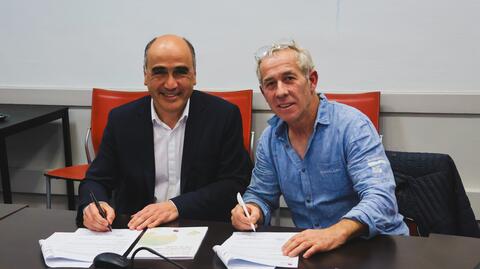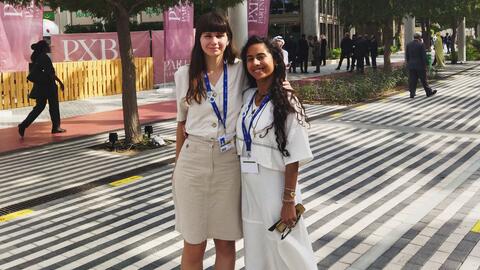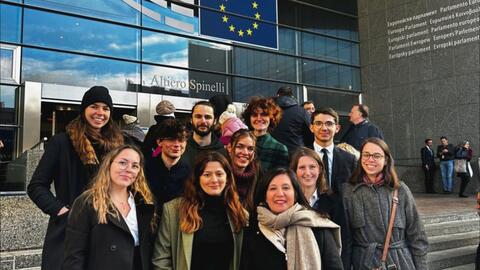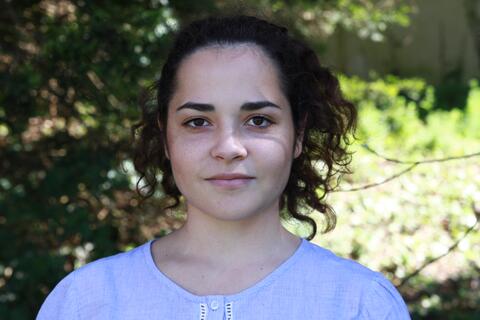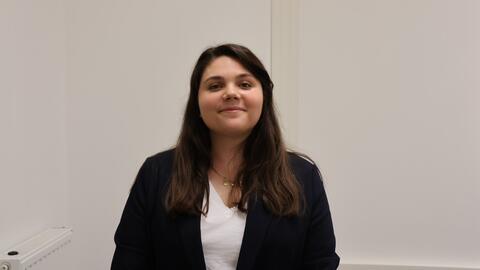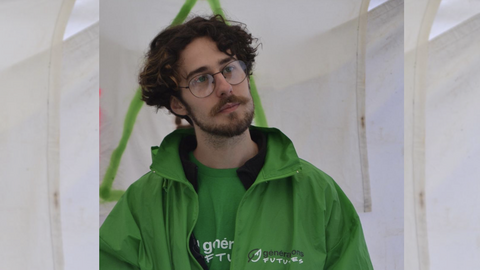The GENFUT program takes a multidisciplinary approach, encompassing all legal systems and with an international scope, to exploring the existential risks facing humanity and the planet, with the aim of preparing tomorrow’s legal professionals for roles in advocacy and international legal negotiations, as well as citizens and politicians committed to protecting a future that connects us all.

- Context
- Objectives and skills acquired
- Overview
- Institutional and professional reach
- Curriculum
- Program format
- Student profile
- Admission
- Career opportunities
A full-fledged scientific revolution is underway, against a backdrop of multiple crises in ecology, biodiversity, technology and health. At the intersection of different civilizational narratives, the emerging presence of environmentalism in both hard and soft sciences calls for a profound examination and reshaping of human societies.
Ensuring a future for the future is an unprecedented ethical question first raised by the philosopher Hans Jonas. The scale of transformation brought about by humankind acting in its interests and on its environment is such that the protection of the future must be enshrined in law. One question provides a perfect illustration: can we pursue unlimited economic growth in a world of finite resources?
It is time to support the current green revolution underway in the ethical, political, legal and hard sciences. Laws —constitutional law above all — must reflect the awareness that the future is in danger and ensure the survival of human civilizations in a way compatible with the Sustainable Development Goals, because, ultimately, no goal is more important than making peace with our planet.
In this new context, the GENFUT program aspires to extend the legal spectrum to include the protection of the future, the rights of future generations and nature, and to try legal hybridization based on environmental protection models such as the ones adopted by indigenous communities.
The GENFUT program takes a multidisciplinary approach, encompassing all legal systems and with an international scope. It prepares professionals in this prism of legally-focused approaches. Program graduates are skilled in environmental and health advocacy in every major area that falls under the protection of the future.
The relevance of such a program at the Sciences Po Rennes Caen campus stems from a firm belief that future generations, and the recognition of the long-term picture, have become new political, legal and ethical entities that support the transformation of our society.
The scope of action of future graduates is broad: they must be able to work abroad, speak fluent English as a minimum, and perform in a variety of structures, from regional authorities to international organizations, ministries, public institutions, companies, NGOs, environmental non-profits, and national, European and international jurisdictions.
They acquire highly skilled expertise in complex reasoning, a multidisciplinary approach to contemporary environmental and health challenges, and an in-depth understanding of emerging and expanding legal subjects such as animal rights, nature, indigenous peoples and future generations.
The program prepares professionals who can work at several levels of governance to provide long-term, systemic and integrated expertise in the legal protection of future generations, the environment and environmental health. By incorporating complex reasoning and multidisciplinary knowledge into their practice, these future professionals will bring a fresh, dynamic, innovative perspective, both global and specific, to the organizations they join.
The GENFUT program is based at the School of International Affairs and is coordinated with other programs at universities abroad.
Partnership projects with prominent foreign universities such as Pace University in New York and a Moot Court competition will be key vectors in establishing an excellent institutional and academic network.
Potential partners include Nobel Peace Prize-winning NGOs, environmental defense groups and intergovernmental organizations (IGOs) specialized in the legal protection of the environment.
GENFUT is a two-year program that includes:
- 764 hours of teaching by lecturers and professionals reputed in their fields of expertise
- A Moot Court competition and summer school program that includes events with students from other universities
- Seminars with lawyers, judges and other legal professionals leading legal and economic projects in the protection of future generations and the environment
- A minimum 16-week internship in a private or public career-oriented entity, in France or abroad
In year one (M1), a multidisciplinary curriculum enables students to cover the fundamentals.
In year two (M2), students explore a variety of topics in depth over the course of two semesters and complete a mandatory 16-week internship.
The program runs from September to September at the Caen campus of Sciences Po Rennes.
Classes run from September to the end of March. At the end of the program, students present an expertise report produced throughout the year to a panel of professionals.
The minimum 16-week internship begins in April.
It is evaluated during the presentation of an internship report no later than September 30.
GENFUT offers international immersion, either directly via a study abroad program, or indirectly by taking part — in person or remotely — in an international conference.
This program is open to first-time and continuing education students.
• First-time students: Sciences Po students who have completed their fourth year of study and students who have obtained a second-year Master’s degree in law, economics, geography, urban planning, philosophy, engineering or architecture.
• Continuing education: Employees enrolled via individual education leave or a company training plan.
The program can accommodate 18 students. Admission is based on an application and an interview for qualified applicants.
- Environment and health advocacy officer
- Forward-looking mission development officer for:
- regional authorities
-government ministries
- Sustainable Development Goal consultant
- Public policy transition officer
- Expert in future generations law
- Green transition consultant
- Sustainable development consultant
- Judge/magistrate in new specialized environmental jurisdictions
- Green and/or sustainable development transition consultant for:
- the dedicated commission of the French National Assembly
- the dedicated commission of the French Senate
-Council of Europe bodies
- the dedicated commission of the European Parliament
- the dedicated commission of the European Commission
- the European Court of Human Rights (ECHR)
- the International Criminal Court (ICC)
- the various bodies of the United Nations system, including the Convention of Biological Diversity, FAO, the Human Rights Committee


